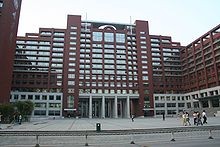Renmin University has launched its first postgraduate course for creative writing earlier this month, despite the long debate of whether writers can be taught.
The university also introduced its own special way of selecting candidates who have talent for the course called "independent recruitment."
"We hoped to focus more on the candidates' writing rather than other elements which are examined in the existing system, like scores of English or other subjects," said Yan Lianke, a famous writer and one of the professors of the program.
"It also made it easier for us to find people that write really well," said Yan. He added that a committee of evaluators picked the eight students for the course.
Yan compared the selection process to a trial conducted by LuXun Literature Institute and Beijing Normal University in 1988 when they launched a similar program. The master's course was attended by the likes of Mo Yan, Liu Zhenyun, Chi Zijian, Yu Hua and Yan Geling, who have all become well-known writers in their particular genres.
The trend of having creative writing courses in Chinese universities was started by Shanghai's Fudan University in 2009. However, writer Wang Anyi, who has been teaching creative writing there, said that "students tend to imitate" and "they struggle to find their own voices."
Several universities have since offered a master's degree in creative writing, modeled after the program created by the University of Iowa in the United States, which has been offering the course since the 1930s.
Besides the debate of whether writers can be trained, there has also been the issue of what jobs someone can get after finishing a course in creative writing.
The creative writing program of Peking University states in its training goals that its graduates are suitable for jobs that require refined skills and creativity.
Other universities claim that graduates of their creative writing programs cater to the market needs of writing for TV, film, drama, animation and more.
When it comes to being a writer, Liu Zhenyun says that universities can only offer students exposure to writers who can provide them with knowledge and insights.
Liu and Yan will join literary critic Sun Yu and others in conducting a series of lectures, discussions and fieldwork for Renmin University's program.
Ha Jin, an internationally acclaimed Chinese-American author who mainly writes in English, has also been tapped to give lectures at the university, along with several translators, publishers and literary agents.
Yan said, "Though we cannot make them successful writers through teaching, we can tell them how to avoid detours on the writing path."



























